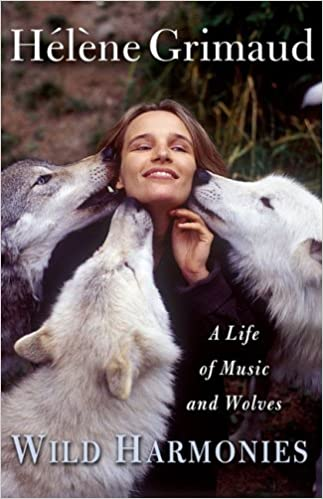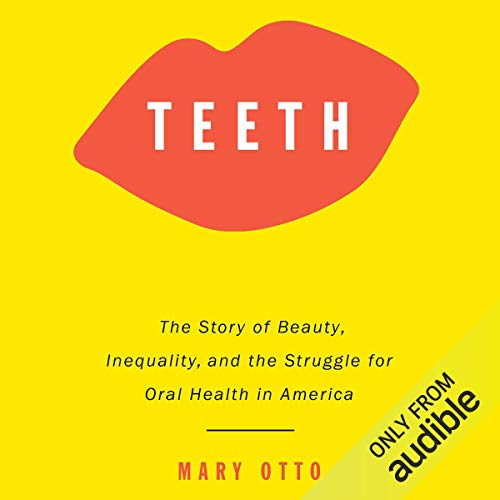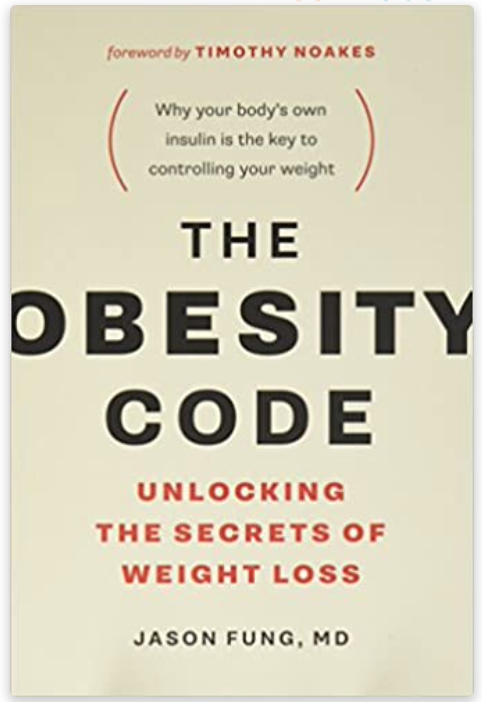What are you reading now?
-
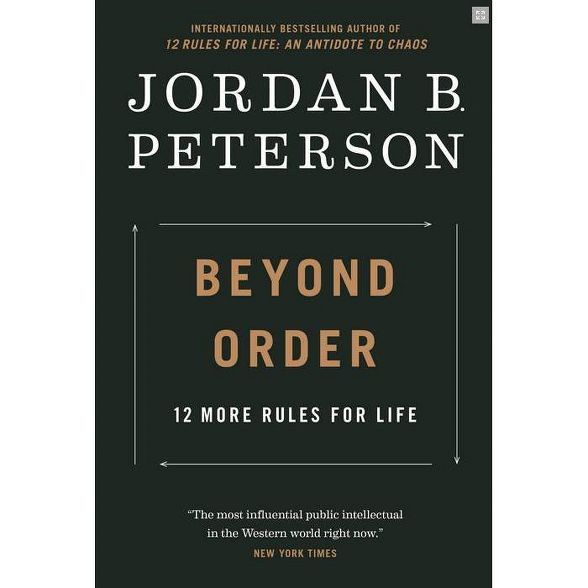
-
@aqua-letifer started reading it yesterday. What do you think?
-
@aqua-letifer started reading it yesterday. What do you think?
@klaus said in What are you reading now?:
@aqua-letifer started reading it yesterday. What do you think?
Interesting to hear the fleshed out story behind his health issues, and how he handled the timing of the publication in the midst of the pandemic.
Aside from that, as always his insights about the nature of storytelling, its importance, and how it works as a process are very sharp and much appreciated. (The humanities would be very well served by following a more structuralist model, but ah well, what are you gonna do.)
Only read the first chapter so far but it's been good.
What do you think? How far are you?
-
@klaus said in What are you reading now?:
@aqua-letifer started reading it yesterday. What do you think?
Interesting to hear the fleshed out story behind his health issues, and how he handled the timing of the publication in the midst of the pandemic.
Aside from that, as always his insights about the nature of storytelling, its importance, and how it works as a process are very sharp and much appreciated. (The humanities would be very well served by following a more structuralist model, but ah well, what are you gonna do.)
Only read the first chapter so far but it's been good.
What do you think? How far are you?
@aqua-letifer said in What are you reading now?:
@klaus said in What are you reading now?:
@aqua-letifer started reading it yesterday. What do you think?
Interesting to hear the fleshed out story behind his health issues, and how he handled the timing of the publication in the midst of the pandemic.
Aside from that, as always his insights about the nature of storytelling, its importance, and how it works as a process are very sharp and much appreciated. (The humanities would be very well served by following a more structuralist model, but ah well, what are you gonna do.)
Only read the first chapter so far but it's been good.
What do you think? How far are you?
I tried to read the first and just felt you could learn a lot more in shorter and more interesting time from others.
-
@aqua-letifer said in What are you reading now?:
@klaus said in What are you reading now?:
@aqua-letifer started reading it yesterday. What do you think?
Interesting to hear the fleshed out story behind his health issues, and how he handled the timing of the publication in the midst of the pandemic.
Aside from that, as always his insights about the nature of storytelling, its importance, and how it works as a process are very sharp and much appreciated. (The humanities would be very well served by following a more structuralist model, but ah well, what are you gonna do.)
Only read the first chapter so far but it's been good.
What do you think? How far are you?
I tried to read the first and just felt you could learn a lot more in shorter and more interesting time from others.
@loki said in What are you reading now?:
I tried to read the first and just felt you could learn a lot more in shorter and more interesting time from others.
Then you missed the point.
I'm not trying to be shitty or snobby about that. Peterson's a weird mix of things. I don't know much about clinical psychology or motivational self-help, so I can't speak to those aspects, but I know a lot about lit theory. Maps of Meaning is one of the most important books on the subject from the past century. Probably the most important of the past handful of decades. Not only is that true because of its insight—it's also true that no one else out there is even trying. Lit theory is currently undergoing a dark ages, and here comes this weird ass psychologist who talks about lobsters and room-cleaning and makes some of the most important contributions to the Humanities as anyone else alive. No, you literally can not find this information elsewhere, it's not taught anymore.
-
@loki said in What are you reading now?:
I tried to read the first and just felt you could learn a lot more in shorter and more interesting time from others.
Then you missed the point.
I'm not trying to be shitty or snobby about that. Peterson's a weird mix of things. I don't know much about clinical psychology or motivational self-help, so I can't speak to those aspects, but I know a lot about lit theory. Maps of Meaning is one of the most important books on the subject from the past century. Probably the most important of the past handful of decades. Not only is that true because of its insight—it's also true that no one else out there is even trying. Lit theory is currently undergoing a dark ages, and here comes this weird ass psychologist who talks about lobsters and room-cleaning and makes some of the most important contributions to the Humanities as anyone else alive. No, you literally can not find this information elsewhere, it's not taught anymore.
@aqua-letifer said in What are you reading now?:
@loki said in What are you reading now?:
I tried to read the first and just felt you could learn a lot more in shorter and more interesting time from others.
Then you missed the point.
I'm not trying to be shitty or snobby about that. Peterson's a weird mix of things. I don't know much about clinical psychology or motivational self-help, so I can't speak to those aspects, but I know a lot about lit theory. Maps of Meaning is one of the most important books on the subject from the past century. Probably the most important of the past handful of decades. Not only is that true because of its insight—it's also true that no one else out there is even trying. Lit theory is currently undergoing a dark ages, and here comes this weird ass psychologist who talks about lobsters and room-cleaning and makes some of the most important contributions to the Humanities as anyone else alive. No, you literally can not find this information elsewhere, it's not taught anymore.
Sorry I should have been more clear. I was referring to the 12 rules for life. I have found his you tubes interesting and of course he’s been talked a lot about here. So, in part, my comment was meant to elicit feedback. I have enjoyed him enough that I will give maps of meaning a whirl. Honestly I was caught a bit off guard by the 12 rules for life but I’ll allow for the fact I could be missing something.
-
@aqua-letifer said in What are you reading now?:
@loki said in What are you reading now?:
I tried to read the first and just felt you could learn a lot more in shorter and more interesting time from others.
Then you missed the point.
I'm not trying to be shitty or snobby about that. Peterson's a weird mix of things. I don't know much about clinical psychology or motivational self-help, so I can't speak to those aspects, but I know a lot about lit theory. Maps of Meaning is one of the most important books on the subject from the past century. Probably the most important of the past handful of decades. Not only is that true because of its insight—it's also true that no one else out there is even trying. Lit theory is currently undergoing a dark ages, and here comes this weird ass psychologist who talks about lobsters and room-cleaning and makes some of the most important contributions to the Humanities as anyone else alive. No, you literally can not find this information elsewhere, it's not taught anymore.
Sorry I should have been more clear. I was referring to the 12 rules for life. I have found his you tubes interesting and of course he’s been talked a lot about here. So, in part, my comment was meant to elicit feedback. I have enjoyed him enough that I will give maps of meaning a whirl. Honestly I was caught a bit off guard by the 12 rules for life but I’ll allow for the fact I could be missing something.
@loki said in What are you reading now?:
Sorry I should have been more clear. I was referring to the 12 rules for life.
No I gotcha. 12 Rules isn't a lit theory book, but those lessons are baked in anyway. Maps of Meaning is much more dense. It took me several months to chip away at it because here and there I compared his analysis to source material.
FWIW, I also think his lectures on Genesis and Exodus provide perspectives that fill a lot of modern gaps.
-
Uhm, George? Everything okay?
-

Re-reading it, first read it maybe 25 years ago. Exceptional book, holds your attention for all 1250 pages.
Shirer was an American journalist assigned to Europe, lived in Paris and Berlin and Vienna. He became one of Edward R Morrow's guys.
So many casual first person references, not as the story itself, just as side notes. Two examples:
He was in Vienna during the Anschluss.
I had emerged from the subway at the Karlsplatz to find myself engulfed in a shouting, hysterical Nazi mob which was sweeping toward the Inner City. These contorted faces I had seen before, at the Nuremberg party rallies. They were yelling, “Sieg Heil! Sieg Heil! Heil Hitler! Heil Hitler! Hang Schuschnigg!
He was at Munich in September of 38, and describes Chamberlain and Hitler as their meeting ended:
The ice, however, had been broken, and as the meeting broke up at 1:30 A.M. the two men seemed, despite all that had happened, to be closer together personally than at any time since they had first met. I myself, from a vantage point twenty-five feet away in the porter’s booth, where I had set up a temporary broadcasting studio, watched them say their farewells near the door of the hotel. I was struck by their cordiality to each other. Schmidt took down the words which I could not hear: ...
And on and on. It's really gripping. You don't really notice the length, any more than you do in a series that's several seasons long. I mean, other than it takes a couple months to finish. lol
-
It is long though, look at my current page number and progress through the book:
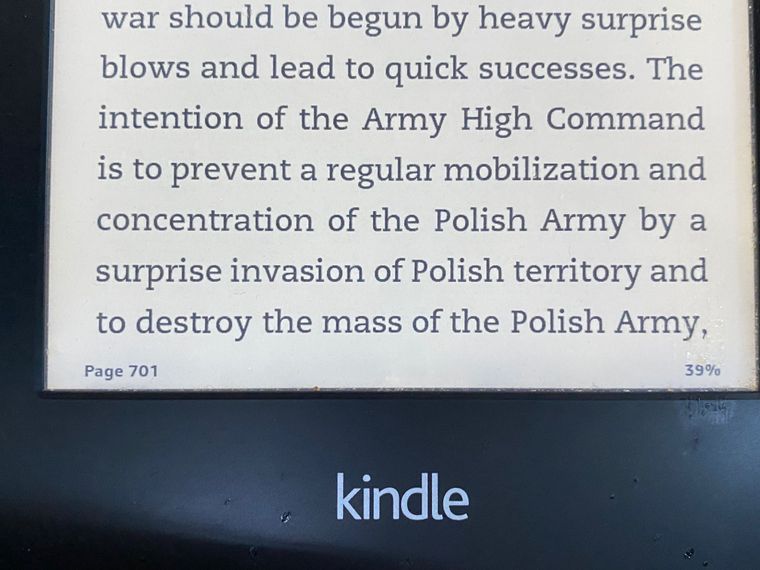
But that's page 701 and the Nazis haven't even invaded Poland yet. It really does give a thorough cover to the rise of Hitler and his party.
-
I've had this book in PB for very many years. Haven't redd it. Books come and go, that one always remains, getting more and more tattered as time passes. Someday.
Thanks for your comment. Maybe someday will come a bit sooner now.
ETA: Another book that has that same easy style that absorbs you is The Russians by Hedrick Smith. He wrote it based on his experiences as the Moscow NYT Bureau Chief. IIRC, the emphasis was very much on everyday life in Russia, and not so much on politics. (I could be wrong about that, though.)
-
@george-k said in What are you reading now?:
I'm going to go thru the "Revelation Space" universe in chronological (not published) order. The short stories and novellas have given enough background to make it understandable.
Yeah. Reading them in chronological order is definitely worth the effort. Reynold's world-building is great. He has a very unique style - sometimes first-person, sometimes third-person.
Just started this the other day:
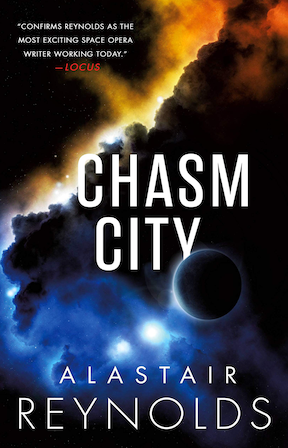
"The once-utopian Chasm City -- a domed human settlement on an otherwise inhospitable planet -- has been overrun by a virus known as the Melding Plague, capable of infecting any body, organic or computerized. Now, with the entire city corrupted -- from the people to the very buildings they inhabit -- only the most wretched sort of existence remains. For security operative Tanner Mirabel, it is the landscape of nightmares through which he searches for a lowlife postmortal killer. But the stakes are raised when his search brings him face to face with a centuries-old atrocity that history would rather forget."
@george-k said in What are you reading now?:
Yeah. Reading them in chronological order is definitely worth the effort. Reynold's world-building is great. He has a very unique style - sometimes first-person, sometimes third-person.
Just started this the other day:

Finishing this up this week. It's quite a ride.
Reynolds' books are like a jigsaw puzzle. You really don't know what the hell is going on until the end.
Sort of reminds me of "Salem's Lot." There are so many things, just hung out there, and then, WHAM!, they all come together. King seems to do it better, but these stories are pretty good as well, even if it takes longer to get them to "dovetail" together.
I'm gonna put Reynolds' stuff aside for a while, but I'm looking forward to getting into his stuff in the near future.
Considering getting back to the "Dune" universe with Brian Herbert's "Sisterhood of Dune."
@LuFins-Dad, have you read this?
-
@george-k said in What are you reading now?:
Yeah. Reading them in chronological order is definitely worth the effort. Reynold's world-building is great. He has a very unique style - sometimes first-person, sometimes third-person.
Just started this the other day:

Finishing this up this week. It's quite a ride.
Reynolds' books are like a jigsaw puzzle. You really don't know what the hell is going on until the end.
Sort of reminds me of "Salem's Lot." There are so many things, just hung out there, and then, WHAM!, they all come together. King seems to do it better, but these stories are pretty good as well, even if it takes longer to get them to "dovetail" together.
I'm gonna put Reynolds' stuff aside for a while, but I'm looking forward to getting into his stuff in the near future.
Considering getting back to the "Dune" universe with Brian Herbert's "Sisterhood of Dune."
@LuFins-Dad, have you read this?
@george-k said in What are you reading now?:
@george-k said in What are you reading now?:
Yeah. Reading them in chronological order is definitely worth the effort. Reynold's world-building is great. He has a very unique style - sometimes first-person, sometimes third-person.
Just started this the other day:

Finishing this up this week. It's quite a ride.
Reynolds' books are like a jigsaw puzzle. You really don't know what the hell is going on until the end.
Sort of reminds me of "Salem's Lot." There are so many things, just hung out there, and then, WHAM!, they all come together. King seems to do it better, but these stories are pretty good as well, even if it takes longer to get them to "dovetail" together.
I'm gonna put Reynolds' stuff aside for a while, but I'm looking forward to getting into his stuff in the near future.
Considering getting back to the "Dune" universe with Brian Herbert's "Sisterhood of Dune."
@LuFins-Dad, have you read this?
Not yet.
